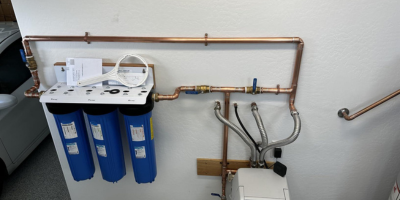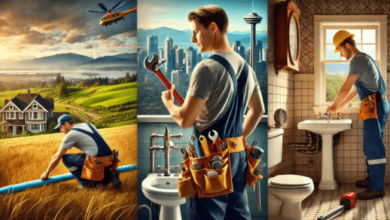Why Clean Water Still Matters (And What We’re Getting Wrong About It)

You’d think that with all the technology we have, clean water would be a non-issue by now. Turn on the tap, fill a glass, done—right? But the truth is, water purity still escapes more homes than you might imagine. Whether you’re dealing with hard minerals that wreck your plumbing or mystery tastes in your drinking water, there’s a quiet but growing demand for smarter water solutions. The kind that doesn’t just treat symptoms, but actually fixes the root problem.
And no, we’re not talking about tossing a pitcher in the fridge and calling it a day. It’s bigger than that.
The Real Cost of “Just OK” Tap Water
Let’s get real—most people don’t think twice about what’s flowing out of their tap. Unless there’s a funny smell or it suddenly turns brown, we tend to assume it’s “safe enough.” But even when water meets official safety standards, that doesn’t mean it’s ideal for your health, your skin, or your appliances. Hard water, for instance, can leave mineral deposits that ruin showerheads, clog coffee machines, and make your laundry feel stiff. Chlorine might keep things sanitary, sure, but it also dries out your skin and can make your water taste like a swimming pool.
That’s where soft water systems come in—quietly transforming the feel and function of your home’s water supply. It’s not some luxury upgrade anymore; it’s basic self-care for your house and your health.
Filter Confusion: Brita Ain’t Gonna Cut It
Here’s where things get a little fuzzy for a lot of folks. They know they want better water—but then what? Do they buy a fancy jug filter from the store? Install something under the sink? Go full-blown whole-home filtration?
Spoiler: it depends.
Local water conditions vary wildly. What works great in one zip code might do nothing in another. That’s why searching for water filter install near me can be a game-changer. Local installers know what’s in your water—because they drink it too. They can test it, tailor the system, and make sure you’re not just throwing money at something that looks nice on a brochure.
The Human Element (a.k.a. The One Everyone Forgets)
Look, filters and tanks are just tools. What really matters is who installs and maintains them. You want someone who knows their stuff, not a random technician reading instructions from a manual. A proper consultation means someone actually listens to your concerns—maybe about that chalky buildup in your kettle or the way your toddler’s skin flares up after baths.
That’s the beauty of working with local experts. They’ll tell you if you need reverse osmosis, UV disinfection, carbon filtering—or just a solid whole-house system that does the heavy lifting. When you find someone offering reliable water treatment—not just selling systems—you’re saving time, money, and future frustration.
What Clean Water Actually Feels Like
There’s this moment, usually a few days after the install, when it hits you.
Showers feel softer. Your hands don’t crack from dryness. The dishes come out of the dishwasher without weird spots. Coffee tastes better. It’s like your house went from black-and-white to color and you didn’t even realize you were living in grayscale before.
People sometimes say, “It’s just water.” But when you’ve lived with less-than-great water for long enough, having clean, soft, treated water feels like a quiet revolution. It’s not flashy, but it changes everything.
Maintenance: The Part Nobody Wants to Talk About
Alright, let’s not sugarcoat it—every system needs a little love to keep working its best. That doesn’t mean you’ll be down in the basement every week with a wrench. But it does mean filter changes, occasional checks, maybe the odd salt refill. Most good installers will set you up with reminders or even offer maintenance plans so you don’t forget.
Honestly, once it’s in, most folks forget the system is even there. It just does its job, like a well-trained butler. You only remember it when you travel somewhere without it and go, “Ugh—this water’s awful.”
Is It Worth It? (Spoiler: Yes.)
At the end of the day, you’ve got to ask yourself—what’s the cost of doing nothing? Another year of bad-tasting water? Another plumber bill for your clogged pipes? Another bottle of lotion to soothe your dry skin?
Or maybe… you find a pro, check local reviews, and finally book that consultation. You don’t need to become a water chemistry expert overnight. Just take the first step toward better water, and let the experts handle the rest.





